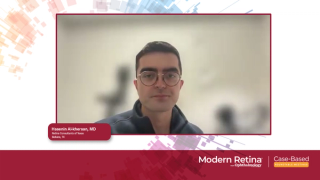Conference Coverage
about 1 month ago
A medical fellow finds some magic at the AAO Annual Meetingabout 1 month ago
FLORetina 2025: Long-term follow-up in pediatric gene therapyabout 2 months ago
FLORetina 2025: Navigating antithrombotic therapy in wet AMDTrending on Modern Retina
Navigating geographic atrophy from biomarkers to bilateral therapy
Eichenbaum Acorns: Mentorship, momentum, and the making of a retina podcast
Long-lived Greenland sharks may point to new approaches for retinal disease
Ollin Biosciences reports positive head-to-head phase 1b data for OLN324 vs faricimab
Latest News
Shorts
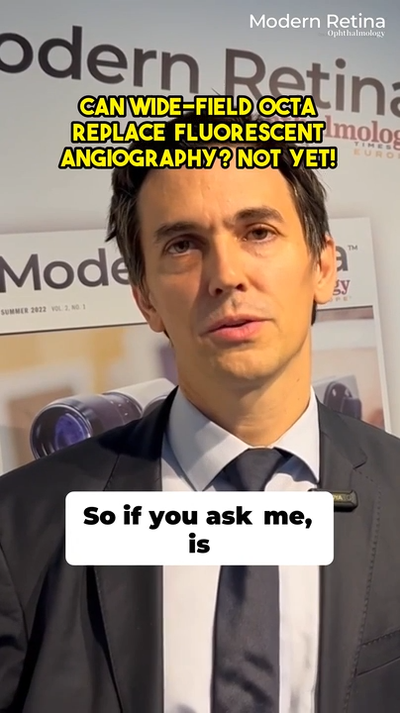
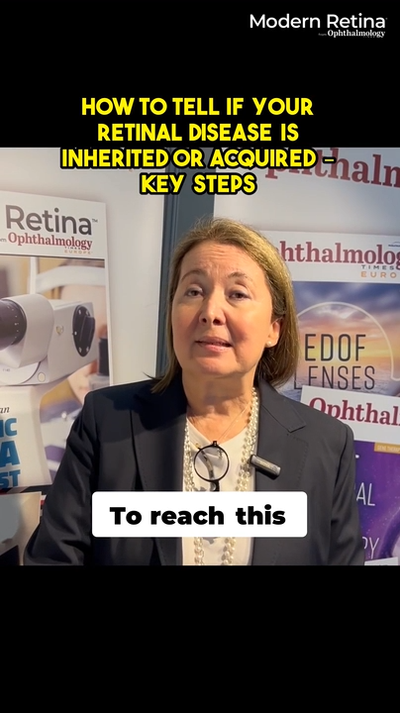
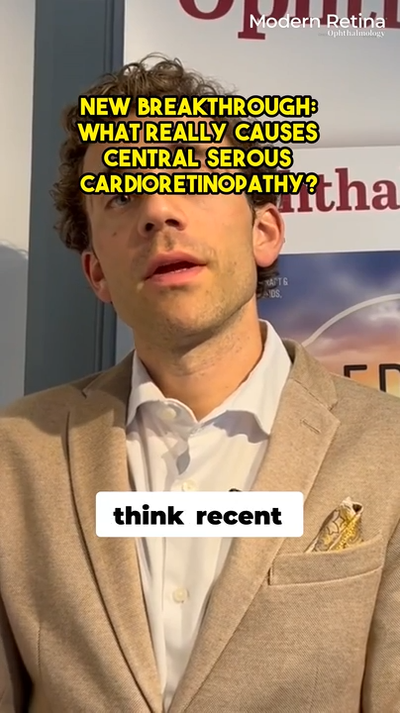
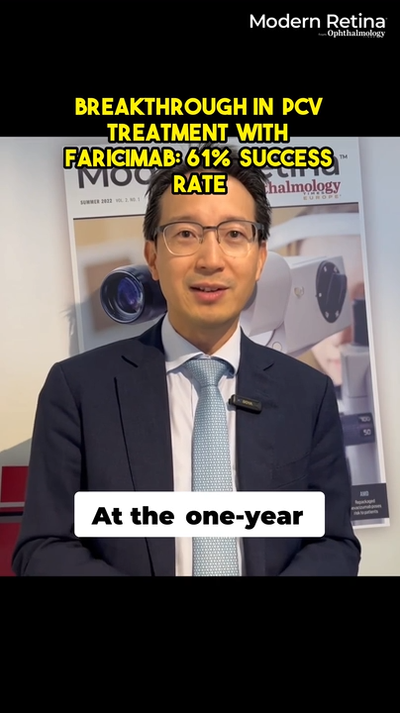
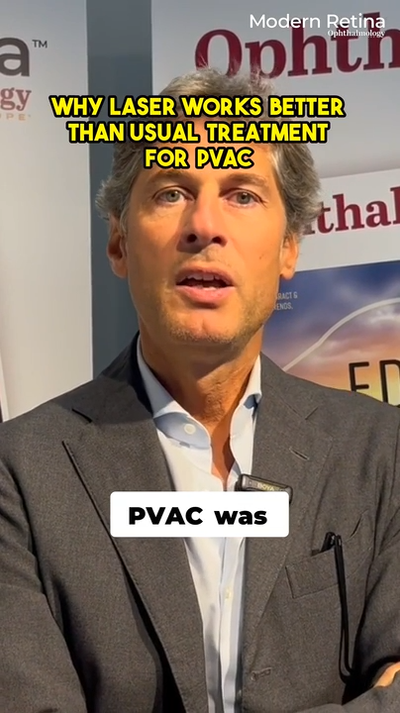
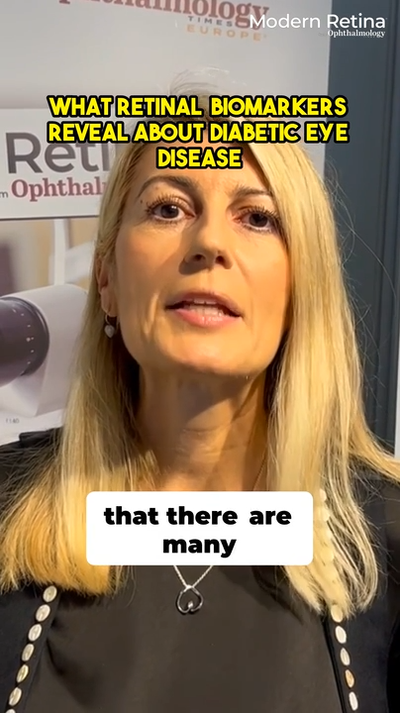
Podcasts

Eichenbaum Acorns: Mentorship, momentum, and the making of a retina podcast
When no retina podcast was available, Jayanth Sridhar, MD, created one—and learned lessons about branding, bandwidth, and mentorship along the way.

Eichenbaum Acorns: Inside the mindset of an early adopter with Jordan M. Graff, MD, FACS
For Jordan M. Graff, MD, FACS, early adoption is about reigniting the thrill of discovery and navigating the rewards, risks, and realities of translating innovation into practice.

The Retina TL;DR: Redefining office-based surgery for retina care with Jonathan Feistmann, MD
In the latest episode of The Retina TL;DR, host Christina Y. Weng, MD, MBA, FASRS, talks with Dr Feistmann in an overview of office-based surgery, with actionable advice for retina specialists considering this approach.

Eichenbaum Acorns: A leadership conversation with Rishi P. Singh, MD, FASRS, on advancing CME
Behind the scenes of building impactful educational platforms in retina care

The Retina TL;DR: Rethinking retinal detachment repair with Tony Stefater, MD, PhD; and Tommy Stryjewski, MD
In the debut episode of The Retina TL;DR, host Christina Y. Weng, MD, MBA, FASRS, talks with Tony Stefater, MD, PhD; and Tommy Stryjewski, MD, about PYK-2101, a biodegradable retinal sealant designed to replace gas and oil tamponades.
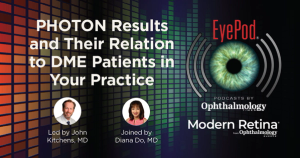
PHOTON Trial Outcomes: Impact on DME Patient Care in Clinical Practice
John Kitchens, MD, and Diana Do, MD, delve into the PHOTON trial results and their significance for treating patients with diabetic macular edema in clinical settings.
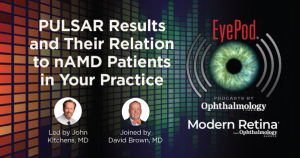
PULSAR Study Findings: Implications for Treating nAMD in Clinical Practice
Join John Kitchens, MD, and David Brown, MD, as they explore the PULSAR study results and their impact on managing neovascular age-related macular degeneration in your practice.
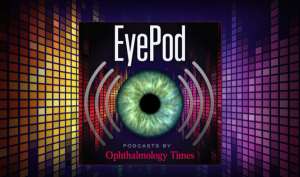
Integrating AI to manage DR in a primary care setting
Ehsan Rahimy, MD, speaks on the highlights of a study he presented at this year's virtual AAO 2020 meeting that aimed to integrate an artificial intelligence screening system for managing diabetic retinopathy referrals in a primary care setting — with limited specialty support.

What to expect from virtual AAO 2020
American Academy of Ophthalmology (AAO) President Anne L. Coleman, MD, PhD, offers a preview of what attendees can look forward to from the academy's 2020 virtual annual meeting — kicking off Nov. 13-15.
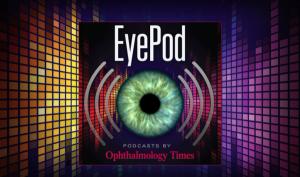
Spotlighting telemedicine in the year of a pandemic
In this EyePod episode, Ranya Habash, MD, of Bascom Palmer Eye Institute, University of Miami, speaks on the expansion of telemedicine in ophthalmology amid the pandemic and why the future of telemedicine requires a new way of thinking.
Videos
Modern Retina Digital Edition



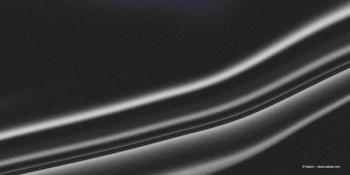

Continuing Medical Education
All News
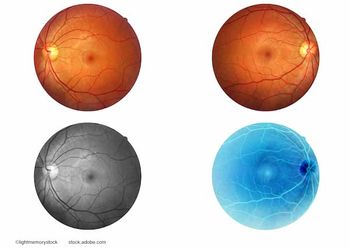
David S. Boyer, MD, outlines changes in GA evaluation, the role of complement inhibition, monitoring for neovascular conversion, and emerging therapies.

Nanoscope's new patent enhances its innovative MCO technology, promising vision restoration for retinal degeneration with strong safety results and market potential.
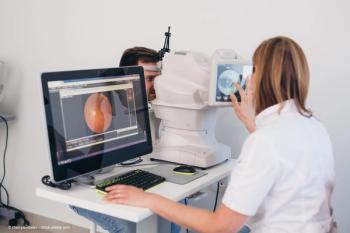
A recent study represents a step forward in investigations of the retinal layers as they are affected by glaucoma.

The Part B dose-expansion portion is evaluating SB-007 for the treatment of Stargardt disease.

The Investigational New Drug (IND) application from Complement Therapeutics for CTx001 was previously approved by the FDA in October 2025.

A trio of retina specialists recently reviewed the clinical benefits of aflibercept 8 mg, including its extended dosing intervals, improved patient satisfaction, and enhanced treatment outcomes for various conditions.

Knowing what’s on the market for AMD and GA aids in preserving vision.

The pandemic reshapes treatment intervals for neovascular AMD, revealing flexible strategies that maintain visual outcomes and enhance patient care.
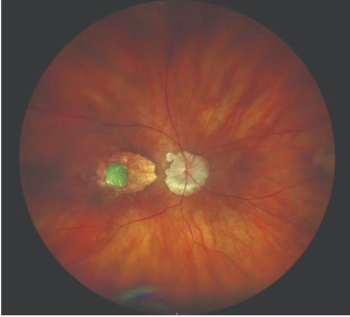
The novel system converts light into electrical signals to stimulate retinal cells.

The company did not receive the necessary stockholder votes to approve the merger agreement with Alcon at the Special Meeting of Stockholders held on January 6, 2026.

Advancements in macular laser therapy, emphasizing standardization, precision delivery, and innovative treatment strategies for retinal conditions.
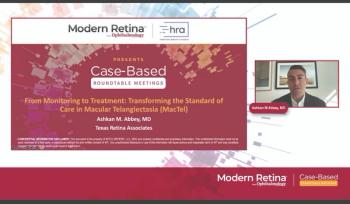

For Jordan M. Graff, MD, FACS, early adoption is about reigniting the thrill of discovery and navigating the rewards, risks, and realities of translating innovation into practice.
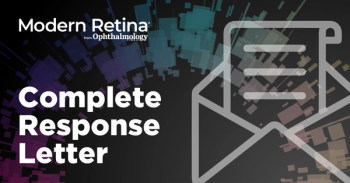
The FDA noted in the letter that it is unable to approve the application for ONS-5010/LYTENAVA (bevacizumab-vikg) in its current form for the treatment of wet AMD.

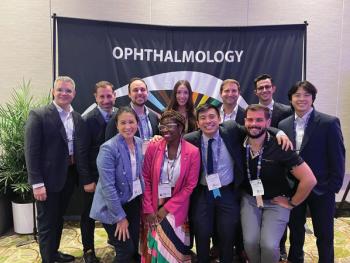
The value of attending industry meetings at the beginning of a career in ophthalmology.

Discover key insights from the AAO 2025 meeting, highlighting advancements in real-world data, gene therapies, multitargeting treatments, and AI in retina care.

AI revolutionizes ophthalmology with enhanced diagnostics, personalized treatments, and improved surgical precision, offering better patient outcomes and efficient clinical trials.

This approach helps distinguish diseases associated with macular atrophy.
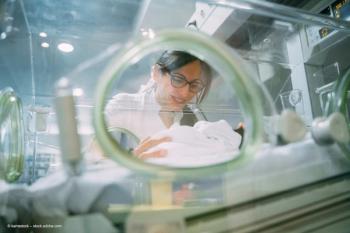
The EU-ROP registry revolutionizes retinopathy of prematurity management, offering insights into treatment variations and outcomes across Europe.

Atrophy Advisor aids physicians in personalizing treatment for geographic atrophy in age-related macular degeneration, enhancing patient care and outcomes.

Dr. Quan Dong Nguyen presents interim data from the phase 3 DRAGON study on a potential first therapy for adolescent Stargardt disease.

Explore the evolving challenges and insights in long-term follow-up for pediatric gene therapy, focusing on data integrity, ethical considerations, and patient retention.
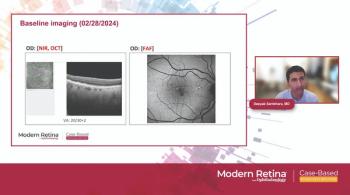
Lock in patient adherence with discussion of study results.

Results showed reduction in geographic atrophy progression and improved visual acuity.
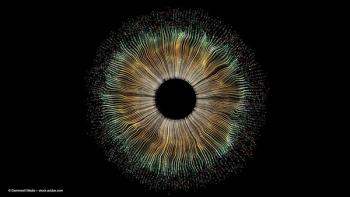
Combining imaging and patient symptoms improves assessment of disease progression.

Ocular Therapeutix accelerates NDA plans for AXPAXLI, targeting wet AMD treatment, following promising phase 3 trial results.

Xelafaslatide is a small-molecule Fas inhibitor designed to protect key retinal cells, including photoreceptors, from cell death that occurs across multiple retinal diseases and conditions.


New research highlights iron dysregulation's role in dry AMD, suggesting transferrin as a promising treatment to slow disease progression.

K8 is a member of a new class of inflammasome-inhibiting drugs called kamuvudines.

Gene therapy revolutionizes retinal disease treatment, offering long-lasting solutions and reducing the need for frequent injections in patients with nAMD.

Geographic atrophy management evolves with proactive imaging, personalized therapies, and real-world insights, enhancing patient care and treatment outcomes.








